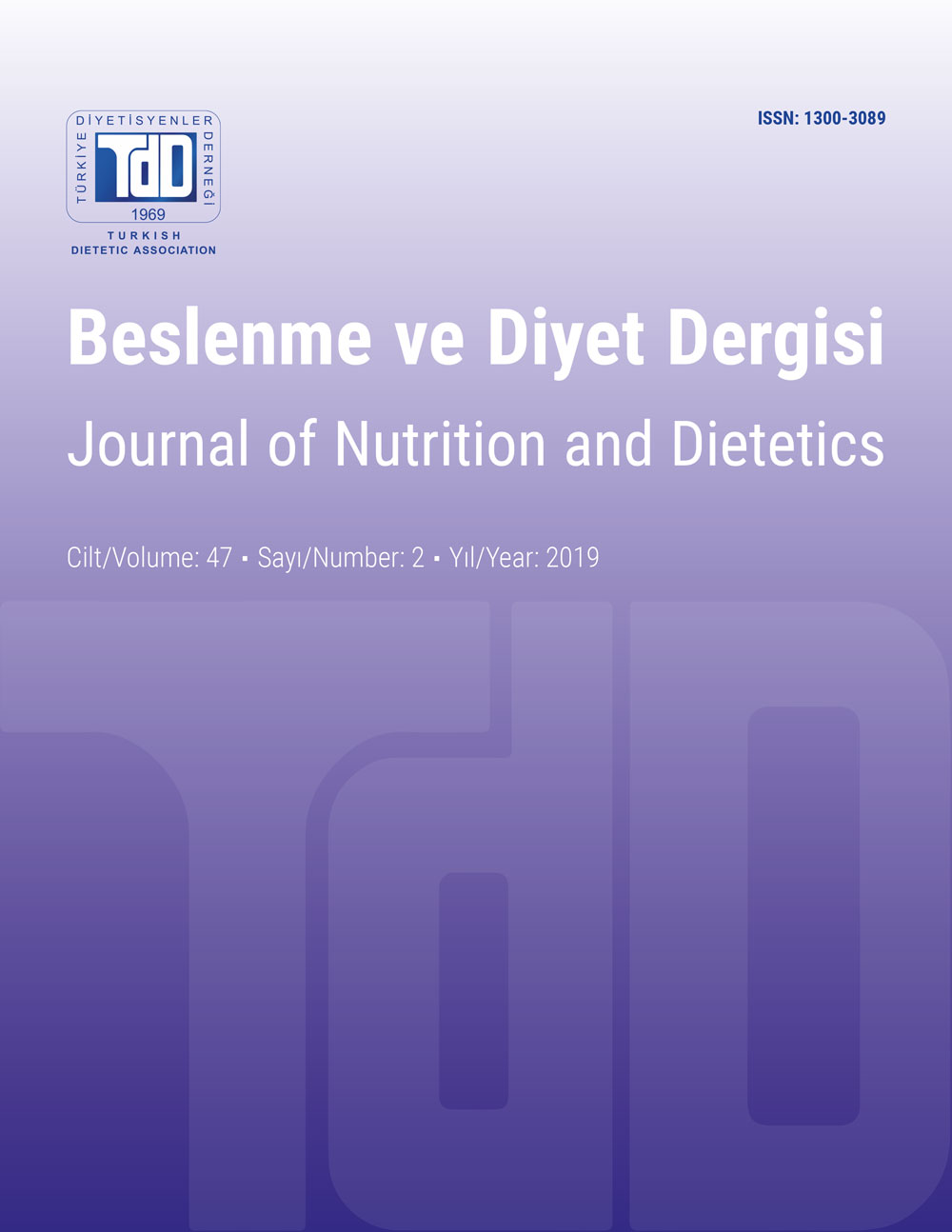Comparison of the Nutritional Knowledge Levels of Children Given Direct or Indirect Nutrition Education
DOI:
https://doi.org/10.33076/2019.BDD.1024Keywords:
Direct nutrition education, indirect nutrition education, nutritional knowledge, child nutritionAbstract
Aim: Study was planned and conducted to compare the nutritional knowledge levels of children who received either a direct or indirect nutrition education.
Subjects and Method: The study enrolled all second and third grade students, two classes for each, in Okan College Primary School during the 2017-2018 terms. Classes were randomly divided into two groups as: (1) direct nutrition education group (DE: 2A and 3A classes), (2) indirect nutrition education group (IE: 2B and 3B classes). During the first stage of the study, teachers in the IE group were given 70 minutes nutrition education for two times with one week interval. The teachers in the same group completed the study by giving nutrition education to their students for 4 weeks (35 minutes/week, 140 minutes in total). In DE group, the students received nutrition education directly from the researchers for a total of 140 minutes during 4 weeks. A questionnaire including demographics, food frequency and nutritional knowledge test were applied at baseline. Food frequency and nutritional knowledge questionnaires were repeated at 2 months after intervention to show the efficacy of nutrition education on dietary behaviors of students.
Results: At 2 months after intervention, there was an increase in mean scores of nutritional knowledge of all students regardless of education models however the level of nutritional knowledge remained at moderate in both groups. Nutritional knowledge level increased from low to medium in DE group (p<0.05), and medium to high in IE group (p<0.05).
Conclusion: Both nutrition education models used in this study had a positive effect on nutritional knowledge levels of children. The higher nutritional knowledge mean scores in indirect nutrition education model at the end of intervention may partly be explained by higher level of nutritional knowledge level at baseline.

